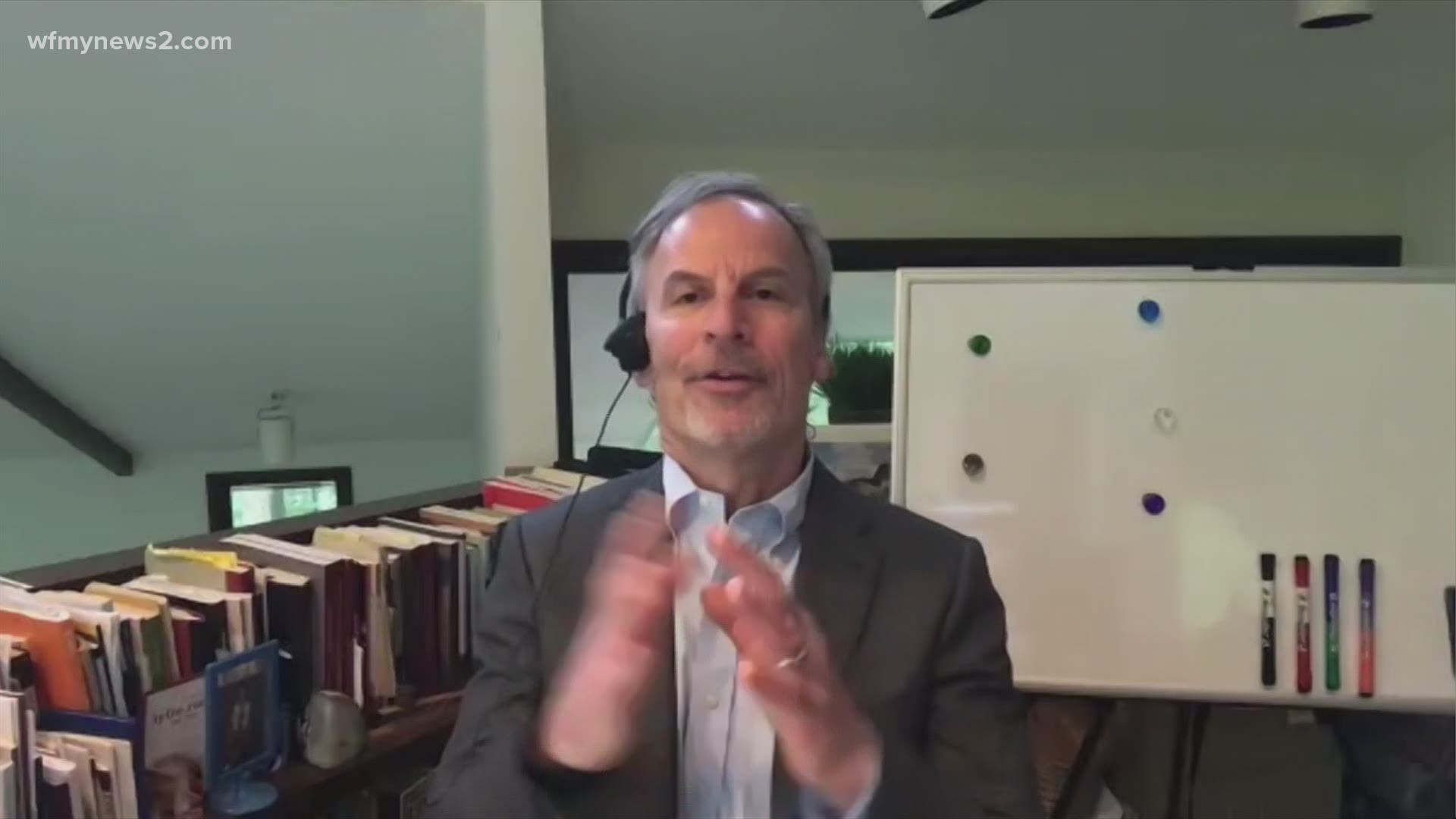GREENSBORO, N.C. — This morning, the prosecution rested and the defense started presenting its case in the murder trial of former Minneapolis Police Officer Derek Chauvin. The defense maintains Floyd's drug use and heart issues led to his death - not Chauvin pinning him down.
We asked Elon law professor Steve Friedland what we can expect from the defense's case. He said, "The first objective of the defense is to show their client is innocent. They don't have the burden, but they want the jury to see this person's innocent. The second objective is to say, even if you think there's some culpability, the prosecution hasn't proven it."
Friedland says 3 issues have emerged that seem to be key to the case:
-Causation -- Why did George Floyd die?
-The Force- Did Derek Chauvin act reasonably? or did he use excessive force?
-Bystanders - did the people watching and filming play a role or present a threat to the officers on scene
The prosecution has the burden of proving every element of the crime beyond and to the exclusion of, reasonable doubt, which Friedland says is why they had the number of witnesses they did and the type of witnesses they did. He says the real question is: did the jury believe that the prosecution proved its case. This is why he says the prosecution made sure that it had enough before the jury so that the jury can conclude without a reasonable doubt that Derek Chauvin committed second degree murder. But no one really knows how the evidence is being received by the jury.
When asked if any moments from the prosecution's case stood out, Friedland said, "It's fairly unusual, though maybe things are changing, that a police chief is going to testify for the prosecution in this kind of case.. and this police chief was fairly straightforward and blunt saying Chauvin's actions were totally unneccesary and that is something that was not usual."
In the end, Friedland says the defense just wants the person to be found not guilty. He pointed out, when a jury finds someone not guilty, that's not the same thing as saying the person is innocent, it just means the prosecution hasn't proven every element beyond a reasonable doubt. The defense hasn't said whether it'll call Chauvin to the stand. If they do, Friedland says he'd have to respond to a lengthy and specific cross-examination from the prosecution -- which could include asking him about his hands being in his pockets, the time, what he's thinking, to try to get Chauvin to corroborate their claims.
While some say closing arguments could begin next week, Friedland says both sides may make motions and could have rebuttal cases before getting to closing arguments, so we'll just have to wait and see when the jury gets the case.
Friedland says it's still way too early to speculate about how their trial will end. "People shouldn't make up their minds now about what this jury will do. There's still a lot more to go in this trial and it's not good to be premature in saying this is my prediction."

